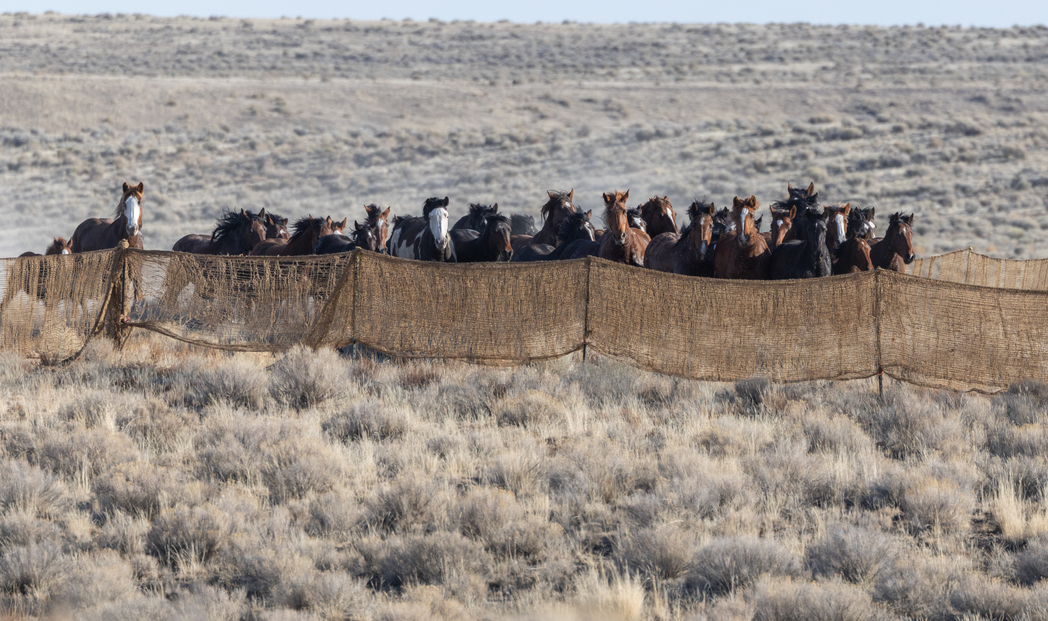

The Harsh Truth Behind Wild Horse & Burro Roundups
Each year, thousands of wild horses and burros are chased by helicopters, separated from their families, and confined in harsh holding facilities. This brutal practice, known as a roundup, causes immense suffering and threatens the survival of these iconic animals. Imagine the terror of being relentlessly pursued, the deafening noise of helicopters overhead, and the heartbreak of family separation. Understanding the reality of roundups is crucial to taking action and safeguarding our wild horses.





Explore the critical issues surrounding wild horse roundups, from inhumane practices to ineffective management.
Helicopters chase wild horses over vast distances, causing extreme stress, injuries, and often death. The noise and relentless pursuit leave the horses terrified and exhausted. This cruel practice results in broken families and severe physical and psychological trauma for the animals. Once wild horses and burros are rounded up, they are funnelled into federal holding facilities where they are held, sometimes for life, separated from all they hold dear.
Roundups trigger compensatory reproduction, where the removal of horses leads to higher birth rates among the remaining population. The National Academy of Sciences report states, "Management boosts horse population growth." Instead of controlling populations, roundups exacerbate the problem, leading to more frequent and costly roundups.
The cost of warehousing wild horses in holding facilities is a financial burden on taxpayers, amounting to tens of millions of dollars annually. These funds could be better allocated to humane and effective management solutions that ensure the well-being of wild horses.
Over 60,000 wild horses are currently held in captivity with no prospects for release. BLM data shows a continuous increase in the number of horses in holding facilities, jeopardizing the long-term survival of wild horse populations as more are removed from the wild each year.
Your involvement is key to safeguarding wild horses and burros.
Your contribution helps fund our advocacy, litigation, and protection initiatives.
Urge your representatives to support policies that help protect wild horses and burros.
Join our team of dedicated volunteers and make a direct impact.
Learn how AWHC is actively working to end the practice of roundups and promote humane, effective wild horse management.
AWHC is dedicated to advancing legislation that prohibits inhumane roundups and promotes humane management practices. We work closely with lawmakers to ensure the protection of wild horses and burros.
AWHC leads efforts to implement humane management solutions, such as fertility control programs, to keep wild horses on the range and reduce the need for roundups.
AWHC collaborates with other organizations, stakeholders, and the public to build a strong coalition advocating for the end of roundups and the adoption of humane management practices.